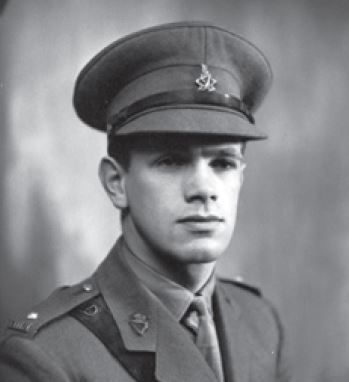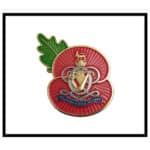John, who died on 9 January 2003, aged 87, was a true countryman who used his wide experience and skills in the hunting field to good effect in his tactical use of the desert landscape in tank warfare.

Like so many patriotic Englishmen, he joined his local yeomanry, The North Somerset, and was then commissioned into The 8th Kings Royal Irish Hussars on 3 September 1936. The Regiment had only recently lost its horses, and was busy training on armoured cars, and, later light tanks, when John joined the Regiment in Abassia Barracks, Cairo, then the RAC training centre in Egypt.
The serious war began soon enough against the Italians and later the Germans, in the western desert. John was caught up in the Sidi Resegh battles in 1941 and Bir Hacheim the next year. In June 1942 the Regiment lost many tanks at Garawla. The Commanding Officer and most of his headquarters were taken prisoner, but John and his tank crew managed to escape.
The Regiment was so depleted that it was effectively amalgamated with 4th Hussars, and John eventually commanded ‘C’ Squadron, the only 8th Hussar Sabre Squadron in existence. He took part in the Alam Halfa battles, which preceded Alamein. It was during this time he was awarded the Military Cross.
Cyprus was vulnerable to the German attack, and the Regiment was lucky to be sent there in December 1942, where John commanded a squadron. True to his countryman’s instincts, he had a pet pig, called Pamela – such was the wonderful respite from the dangers and discomforts of desert warfare that this posting provided.
The Regiment arrived back in the UK in November 1943 and was sent to train on brand new Cromwell tanks in Norfolk, and then awaited the landings in Normandy at Bognor Regis, of all places.
John was with the Regiment throughout the North-West Europe campaign until he was given a home posting first to the 1st Royal Gloucester Hussars, then as a squadron leader to 54 Training Regiment, and finally to his old Regiment, North Somerset Yeomanry, retiring at the end of December 1948.
He fulfilled his ambitions to be a farmer and Master of Foxhounds.
He will always be remembered for his quiet confidence in the stress of war, his calm voice, and a pipe almost always in his mouth.



